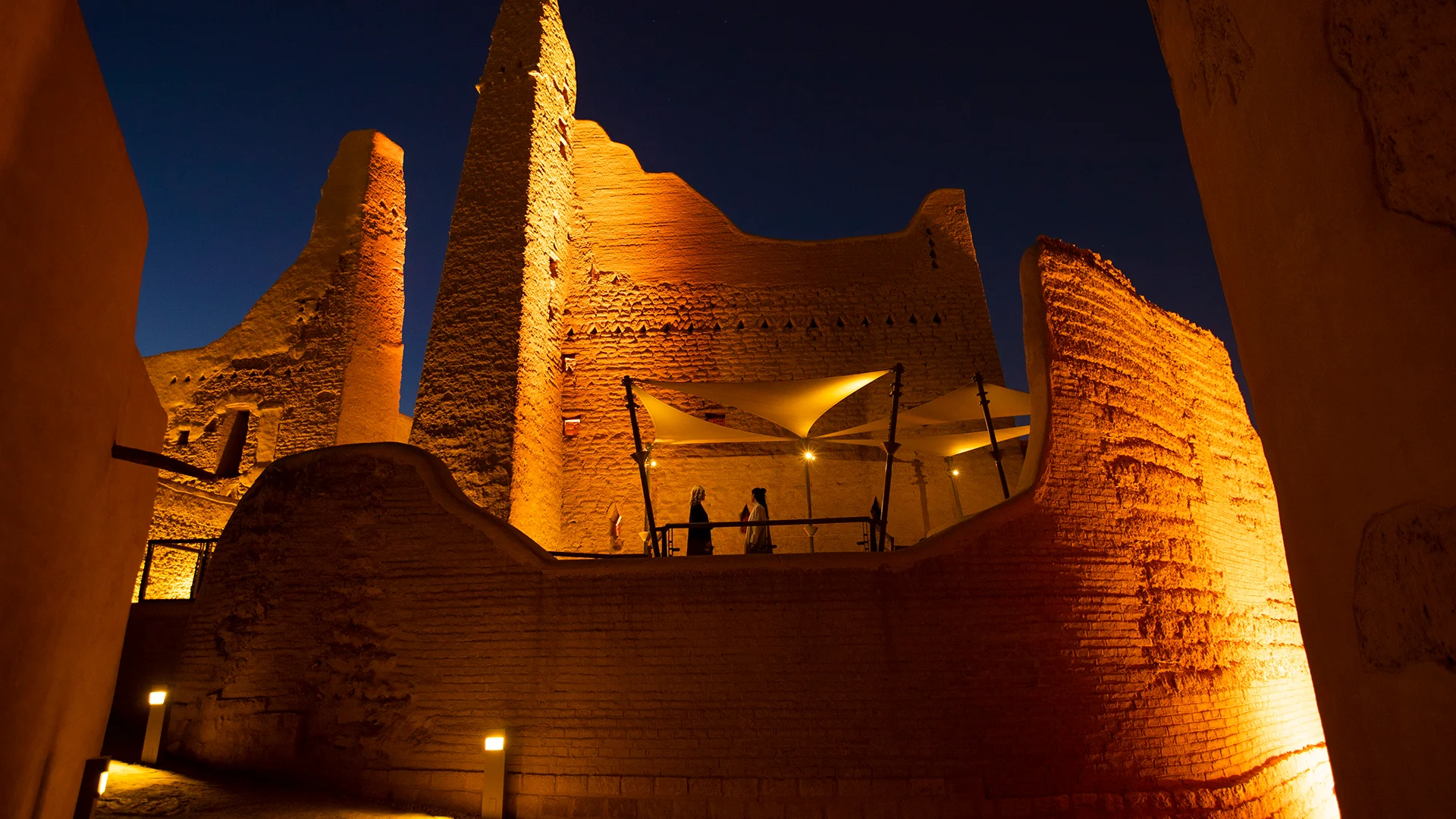
Located on the outskirts of Riyadh, Diriyah is one of the most significant historical sites in Saudi Arabia and the Arabian Peninsula as a whole. It is the birthplace of the First Saudi State, founded by Imam Muhammad bin Saud in the mid-18th century. Diriyah represents a cultural and historical symbol, bearing witness to crucial stages in the Kingdom’s history and narrating the story of a state whose influence spread across much of the Arabian Peninsula. Its importance goes beyond being the birthplace of a nation—it played a central role in spreading the Salafi call, unifying the country under one banner, and laying the foundations of the modern Saudi state. Diriyah stands as a symbol of resilience, preserving a heritage rich with archaeological landmarks and unique traditional architecture.

Diriyah is situated on the western bank of Wadi Hanifa, in a strategic location with a mild climate and abundant groundwater. This advantageous position greatly contributed to its development as a major commercial and cultural center in the region. Surrounded by mountains to the west and vast plains to the east, Diriyah enjoyed natural protection while remaining accessible through ancient trade routes. Its setting along Wadi Hanifa not only enhanced its historical value but also added natural beauty, making it a site of both cultural and touristic importance.

Salwa Palace is one of the most important landmarks in the historic Al-Turaif district. This massive palace reflects the grandeur of traditional Najdi architecture, with its distinctive design, towering walls, and high watchtowers that showcase the craftsmanship of the builders of that era. The palace offers a fascinating glimpse into the lives of rulers and their families, highlighting Diriyah’s cultural and political prominence during its peak.

The Diriyah Museum serves as a window into the rich history of Diriyah. It houses an extensive collection of artifacts, historical documents, and photographs that chronicle the city’s development from its foundation to the present day. The museum provides visitors with an in-depth understanding of Diriyah’s cultural legacy and is regarded as one of the most important research and educational resources about the region’s history.

The Imam Muhammad bin Saud Mosque is among the most prominent religious and historical landmarks in Al-Turaif. It served as an important religious center and witnessed many key events in Saudi history. Its simple yet elegant Najdi architectural style reflects the region’s traditional design. The mosque highlights the central role of faith in the lives of Diriyah’s residents and its influence on their cultural identity.


Tourism in Diriyah is one of the most vital cultural and economic sectors in the region. It contributes to stimulating the local economy, creating job opportunities, and showcasing Saudi Arabia’s rich history and heritage to the world. Tourism here is not limited to visiting historical sites—it is a cultural journey that allows visitors to learn about local traditions, customs, and traditional cuisine. Increased tourism in Diriyah also plays a key role in preserving national heritage and strengthening cultural identity.
Diriyah offers a wide variety of tourist activities, including guided tours of Al-Turaif, visits to museums, shopping in traditional markets, tasting local dishes, and enjoying the natural beauty of Wadi Hanifa. Visitors can also engage with local culture through traditional art performances. This makes Diriyah an ideal destination for history and culture enthusiasts, as well as families seeking a meaningful and enjoyable experience.
The Kingdom of Saudi Arabia has launched several large-scale development projects in Diriyah aimed at preserving its historical legacy and transforming it into a world-class tourist destination. These initiatives include the restoration and rehabilitation of archaeological landmarks, the creation of advanced infrastructure, and the provision of high-quality tourist services. The projects seek to safeguard Diriyah’s cultural identity while ensuring visitors enjoy a distinctive and memorable experience.
The Saudi Tourism Authority plays a pivotal role in preserving Diriyah’s cultural heritage and promoting it as a premier tourist destination. The authority supports restoration and development projects, markets Diriyah globally, organizes cultural events, and provides training for professionals in the tourism sector. These efforts significantly contribute to protecting the city’s heritage and enhancing its standing as a key cultural and tourist hub.
Visiting Diriyah is a unique cultural and historical experience. It is an opportunity to explore the birthplace of the First Saudi State, discover its rich heritage, admire its traditional architecture, and sense history in every corner. Diriyah offers visitors an unforgettable journey that broadens their horizons, enriches their cultural understanding, and inspires them with its heroic stories and deep-rooted legacy. A visit to Diriyah is not just a trip—it is a journey into the heart of history, into the cradle of a nation that witnessed defining moments in Saudi Arabia’s past.
Visitors can reach Diriyah by private car, taxi, or public buses. Organized tourist services are also available from Riyadh to Diriyah.
The cost varies depending on the length of stay, type of accommodation, and activities chosen. There are options available for all budgets.
Opening hours differ from site to site. Updated schedules can be found on official websites or through local tourist offices.
Yes, Diriyah offers a range of hotels and resorts, providing high-quality services to suit different tastes and budgets.
Visitors can enjoy traditional Saudi dishes such as Mugalgal, Kabsa, Harees, and Madrooba, along with other authentic flavors.
Yes, in addition to historical tourism, visitors can enjoy desert excursions, water-based activities in Wadi Hanifa, and other leisure experiences.
Key tips include wearing appropriate clothing, keeping the area clean, following site guidelines, respecting local culture, and planning your trip in advance.